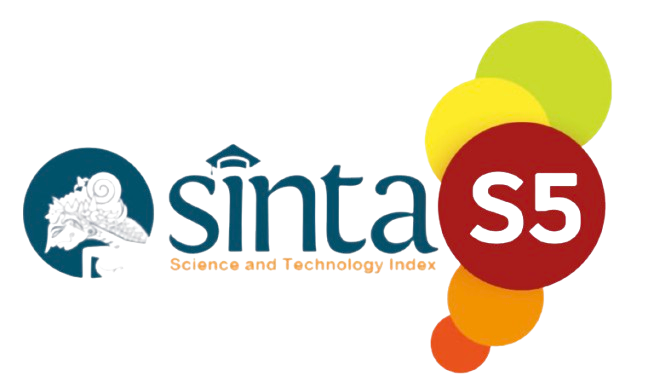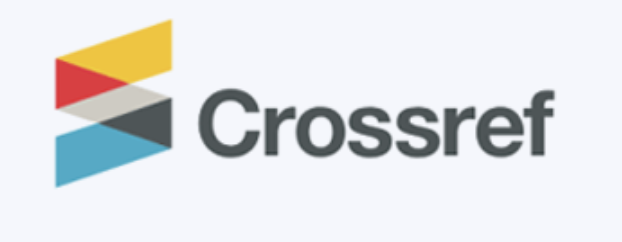Interpretation of Moral and Religious Value in Emha Ainun Najib's Poems
Keywords:
interpretation, moral-religious message, poetryAbstract
The problem studied in this thesis is the interpretation of the moral and religious values in the poems of Emha Ainun Najib. Interpretation is carried out on these poems which show moral and religious values. This study uses a qualitative method with a content analysis approach. The data of this research are the six poems by Emha Ainun Nadjib and in terms of the content of the moral and religious values conveyed by the authors. The results showed that the collection of Emha Ainun Nadjib's poems conveyed both moral and religious values. Moral messages and religious messages conveyed in general provide teachings about monotheism to readers about the importance of surrendering only to Allah SWT, the importance of maintaining aurat for women, the importance of protecting oneself from usury which is forbidden by religion, and the importance of being a devout human being but still in a religious position. There are 10 poems that have been interpreted, the dominant one conveyed by Emha Ainun Nadjib is a religious value. Moral values are conveyed in poetry but only in a few lines in poetry. The moral and religious values conveyed can at least provide life lessons for readers to draw closer to God and be humble in the midst of religious life and society.
References
Ayub, M. E. (1996). Manajemen Masjid. Gema Insani.
Al-Aidaros, A. H., & Mohd Shamsudin, F. (2013). Ethics and ethical theories from an Islamic perspective. International Journal of Islamic Thought, 4, 1-13.
Analisis Teks Berita Media, Jakarta, Kencana Prenada Media Group
Asriningsari, A., & Umaya, N. (2010). Semiotika teori dan aplikasi pada karya sastra.
Chodjim, A. (2007). Syekh Siti Jenar: makrifat dan makna kehidupan (Vol. 2). Penerbit Serambi.
Citraningrum, D. M. (2016). Menulis Puisi Dengan Teknik Pembelajaran Yang Kreatif. BELAJAR BAHASA: Jurnal Ilmiah Program Studi Pendidikan Bahasa dan Sastra Indonesia, 1(1).
Damono, S. D. (2006). Pengarang, karya sastra dan pembaca. LiNGUA: Jurnal Ilmu Bahasa dan Sastra, 1(1).
Emzir, A. D. (2011). Metodologi Penelitian Kualitatif. Jakarta: Rajawali Pers.
Eriyanto. (2013). Analisis Naratif: Dasar-dasar dan Penerapanya dalam Sastra
Ghoni, A. (2016). Konsep Tawakal dan Relevansinya dengan Tujuan Pendidikan Islam: Studi komparasi mengenai konsep tawakal menurut M. Quraish Shihab dan Yunan Nasution. An-Nuha: Jurnal Kajian Islam, Pendidikan, Budaya Dan Sosial, 3(2), 249-263.
Haeri, N. (2013). The Private Performance of" Salat" Prayers: Repetition, Time, and Meaning. Anthropological Quarterly, 5-34
Hammami, R. (1990). Women, the Hijab and the Intifada. Middle East Report, 20(3&4), 24-8.
Hendri, H., Asmaniah, Z., & Kulsum, U. (2019). Analisis Nilai Moral dan Religi dalam Novel ‘‘Cinta Dalam 99 Namamu’’ Karya Asma Nadia. Caraka: Jurnal Pendidikan Bahasa dan Sastra Indonesia serta Bahasa Daerah, 8(1), 23-33.
Minderop, A. (2010). Psikologi sastra: karya, metode, teori, dan contoh kasus. Yayasan Pustaka Obor Indonesia.
Pratama, R. K. (2020). Cak Nun, Maiyah, and Fandom: Participatory Culture Perspective. Journal of Advanced Research in Social Sciences, 3(4), 22-30.
Rahman, J. D. (2016). Wahdatul Wujud dalam Puisi Indonesia Modern: Mendiskusikan Puisi-Puisi Emha Ainun Nadjib. Jakarta: Jurnal UIN Syarif Hidayatullah.
Richards, M. C. (1996). Opening our moral eye: Essays, talks & poems embracing creativity & community. SteinerBooks.
Sugiyono, D. (2010). Memahami penelitian kualitatif.
Zaidi, I. H. (1981). On the ethics of man’s interaction with the environment: An Islamic approach. Environmental Ethics, 3(1), 35-47.














